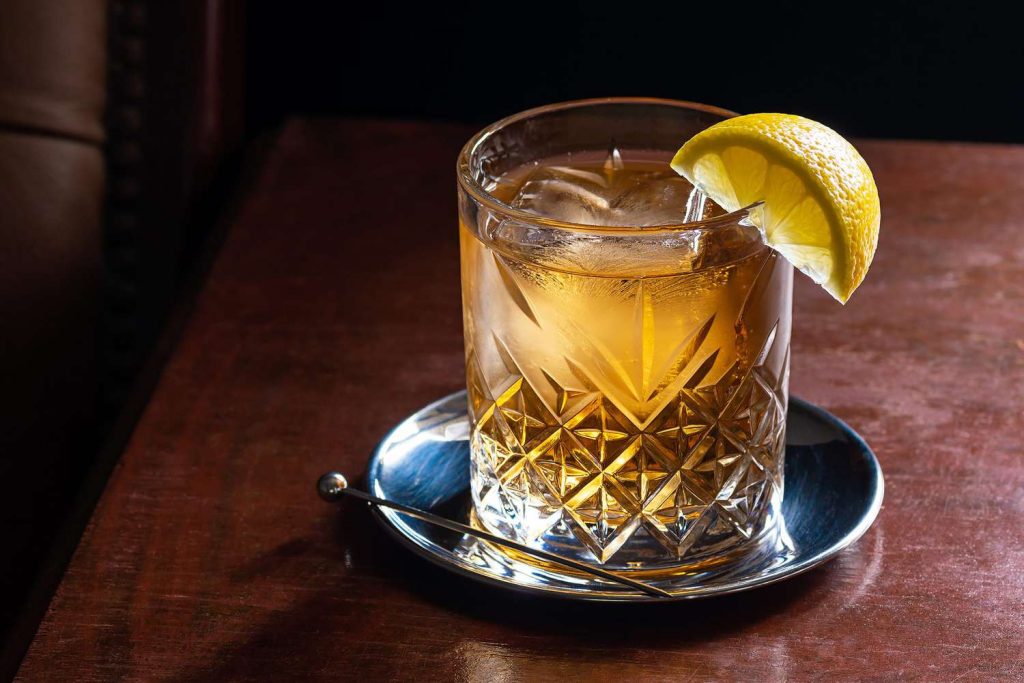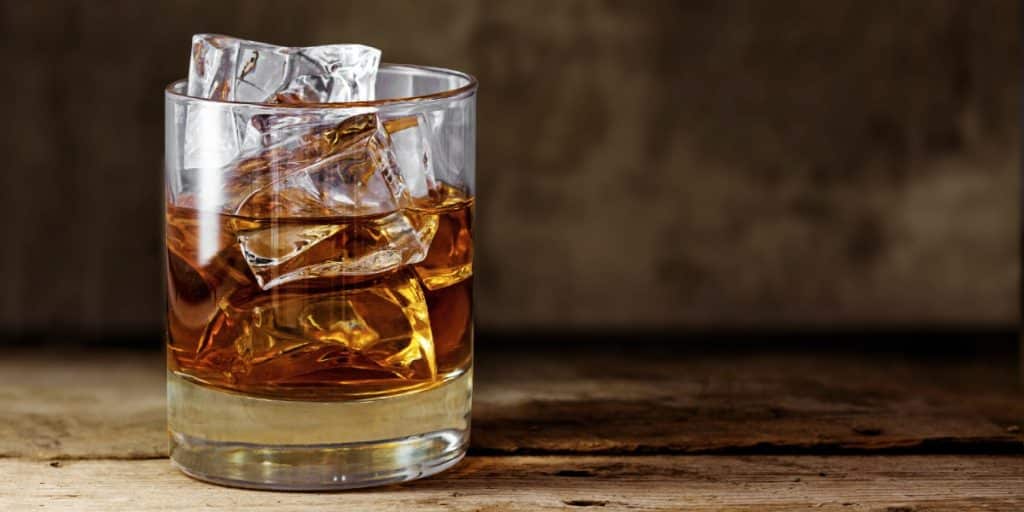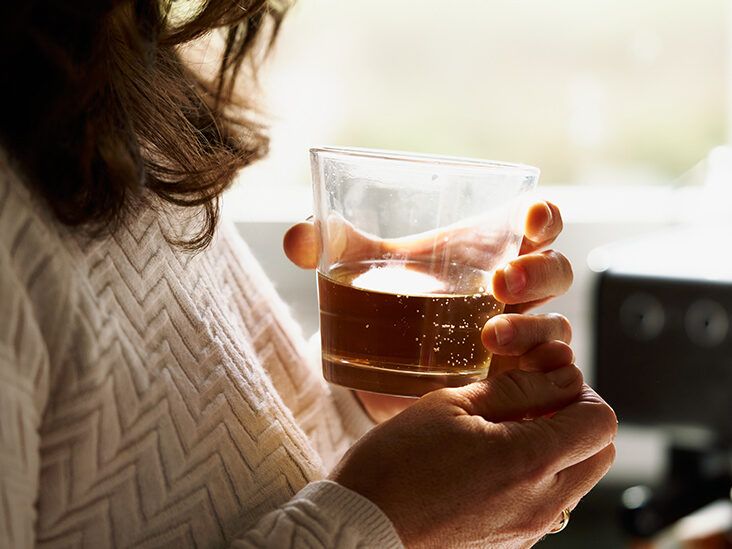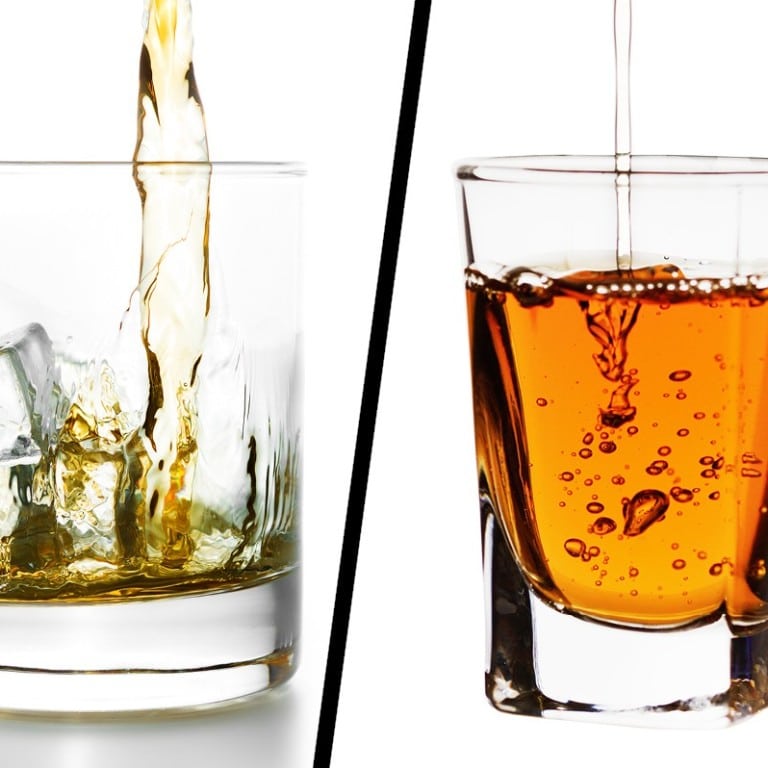Whisky aficionados have long debated the optimal temperature at which to enjoy their favorite spirit. Should it be chilled and crisp, or warmed to bring out the intricate flavors? In this article, we explore the age-old question: is whisky better cold or warm? As we embark on this journey through the realms of taste and preference, we invite you to join us in uncovering the secrets behind the ideal temperature for indulging in a glass of whisky. Brace yourselves, for we are about to embark on a delightful adventure into the world of this beloved libation.
Temperature and Whisky Taste
Understanding the Impact of Temperature on Whisky
Whisky, a beloved spirit enjoyed by many around the world, has a multitude of factors that can influence its taste and overall drinking experience. One such factor is temperature. The temperature at which whisky is consumed can have a significant impact on its flavors, aromas, and overall enjoyment. In this article, we will explore the advantages of both drinking whisky cold and drinking it warm, as well as the pros and cons of each. We will also discuss the optimal drinking temperature for various types of whisky, methods to chill whisky without dilution, and how temperature can influence whisky cocktails. So, whether you prefer your whisky chilled or warmed, read on to discover more about the fascinating relationship between temperature and whisky taste.
The Advantages of Drinking Whisky Cold
Enhanced Refreshment and Smoothness
One of the primary advantages of drinking whisky cold is the enhanced refreshment it provides. The crisp chill of a cold glass of whisky can be incredibly satisfying, especially on a warm summer day. The cool temperature can invigorate the senses and add an extra layer of enjoyment to the drinking experience.
Furthermore, when whisky is chilled, it can often exhibit a smoother and more mellow flavor profile. The cold temperature can help to mask any harsh notes or astringency, making the whisky more approachable and enjoyable for those who prefer a gentler taste. It can be particularly beneficial when sipping on whisky neat or with just a splash of water, allowing the flavors to shine through without any unwanted bite.
Masking of Harsh Flavors
In addition to enhancing refreshment and smoothness, drinking whisky cold can also help to mask any harsh flavors that may be present in the spirit. Some whiskies, especially those with higher alcohol content, can have a certain level of heat or burn that may not be to everyone’s liking. However, when chilled, these harsh flavors can be subdued, allowing the other nuances and complexities of the whisky to take center stage.
For individuals who find certain whiskies too intense or overpowering, chilling the whisky can provide a more balanced and enjoyable drinking experience. By toning down the harshness, the cold temperature allows the drinker to appreciate the subtleties of the whisky without being overwhelmed by its intensity.
Compatibility with Certain Mixers
Cold whisky also lends itself well to the world of cocktails. Many classic whisky-based cocktails, such as the Old Fashioned or the Whisky Sour, are traditionally served over ice or stirred with a chilled mixer. The cold temperature of these drinks not only provides a refreshing sensation but also helps to create a harmonious blend of flavors.
When mixed with ingredients like citrus juices or sweet vermouth, cold whisky can be a wonderful base for cocktails that highlight its complex yet approachable nature. The coolness can balance out the sweetness or acidity of the mixers, resulting in a well-rounded and enjoyable cocktail experience.
This image is property of www.foodandwine.com.
The Benefits of Drinking Whisky Warm
Richer Aromas and Flavor Profiles
While there are undeniable advantages to drinking whisky cold, there are equally compelling reasons to enjoy it warm. One such benefit is the development of richer aromas and flavor profiles. When whisky is gently warmed, whether by hand or by using a specialized whisky warmer, the heat can unlock a whole new dimension of complexity within the spirit.
As the whisky warms, the aromas become more pronounced and the flavors become more intense. This warmth enhances the volatility of the aromatic compounds in the whisky, allowing them to release and fill the air with enticing scents. It is a similar principle to how a gentle heating of spices can release their fragrances when cooking.
Expression of Complex Notes
In addition to richer aromas, warming whisky can also bring out the expression of complex notes that may otherwise go unnoticed when consumed cold. Whiskies are often aged in various types of barrels, such as oak or sherry casks, which impart their own unique flavors to the spirit. When warmed, these flavors can become more prominent and apparent, providing a deeper understanding and appreciation of the whisky’s origin and maturation process.
For those who enjoy exploring the many layers of a whisky’s taste profile, warming the spirit can offer a truly immersive experience. It allows the drinker to uncover hidden flavors and discover nuances that may have been disguised when the whisky was at a colder temperature.
Ideal for Savoring and Appreciating the Whisky
Drinking whisky warm is often associated with a slower, more contemplative approach to consumption. It encourages the drinker to savor and appreciate the intricacies of the spirit, rather than simply quenching their thirst. The warmth of the whisky can create a comforting sensation, making it the perfect drink to enjoy while cozying up by a fireplace or on a chilly evening.
Furthermore, warming whisky can also be a way to showcase the craftsmanship and artistry of the spirit. It allows the drinker to engage all their senses, from the visual appeal of the amber liquid in the glass to the aromatic bouquet that emanates from it, to the smooth and velvety textures experienced on the palate. Drinking whisky warm can truly be a multisensory journey of enjoyment and appreciation.
Cold Whisky: Pros and Cons
Pros of Drinking Whisky Cold
While we have already touched on several advantages of drinking whisky cold, it is worth summarizing them here:
- Enhanced refreshment and smoothness, perfect for warm climates or when desiring a cooling sensation.
- The ability to mask harsh flavors and astringency, allowing for a more approachable drinking experience.
- Compatibility with certain mixers, making it an excellent base for refreshing cocktails.
Cons of Drinking Whisky Cold
Despite the benefits, there are a few potential drawbacks to consider when drinking whisky cold:
- The cold temperature can diminish some of the intricacies and complexities of the whisky, limiting the full appreciation of its flavor profile.
- Chilling whisky for too long or using large ice cubes can result in over-dilution, which can significantly impact the taste and texture of the spirit.
- It may not suit everyone’s preferences, as some individuals might find that cold whisky lacks the warmth and character they seek in a whisky-drinking experience.
This image is property of cdn.cluboenologique.com.
Warm Whisky: Pros and Cons
Pros of Drinking Whisky Warm
Now, let’s delve into the pros of drinking whisky warm:
- Warmed whisky can enhance the aromas and flavor profiles, allowing for a more immersive and sensorial experience.
- It can unlock hidden complexities and subtleties within the whisky, providing a deeper understanding of its maturation and flavor development.
- Warm whisky is often associated with savoring and appreciating the spirit, making it perfect for moments of relaxation and contemplation.
Cons of Drinking Whisky Warm
While there are certainly benefits to enjoying whisky warm, there are potential downsides as well:
- Overheating the whisky can result in harsh and unpleasant flavors, overpowering the more delicate notes.
- Warming whisky too quickly or using excessive heat can lead to rapid evaporation, diminishing the overall taste experience.
- Not all whiskies are well-suited for warming, as the heat can accentuate certain flavors that may not be desirable to every palate.
Optimal Drinking Temperature for Various Whisky Types
Scotch Whisky
Scotch whisky, known for its diverse range of flavors and regional styles, is typically enjoyed at a slightly cooler temperature than room temperature. A range of 15-20 degrees Celsius (59-68 degrees Fahrenheit) is often considered optimal, allowing the complexity and nuances of the whisky to shine without being overly influenced by the temperature.
Bourbon
Bourbon, a distinct type of American whiskey, is known for its robust and full-bodied nature. To fully appreciate the flavors and richness of a bourbon, it is often recommended to drink it slightly chilled, around 10-15 degrees Celsius (50-59 degrees Fahrenheit). This cooler temperature can help to balance out the sweetness and accentuate the spicy and oaky characteristics.
Irish Whiskey
Traditionally, Irish whiskey is enjoyed at room temperature or slightly chilled, around 18-20 degrees Celsius (64-68 degrees Fahrenheit). This temperature range allows the smoothness and subtle fruity notes of Irish whiskey to be enjoyed to the fullest, without any interference from extreme temperature variations.
Japanese Whisky
Japanese whisky, known for its meticulous craftsmanship and attention to detail, is often best appreciated at a slightly warmer temperature than other whiskies. A range of 20-25 degrees Celsius (68-77 degrees Fahrenheit) is commonly recommended, as it allows the delicate flavors and balance of Japanese whisky to be fully experienced.
Rye Whiskey
Rye whiskey, with its distinctive spiciness and bold flavors, can be enjoyed at a slightly colder temperature compared to other whiskies. A range of 10-15 degrees Celsius (50-59 degrees Fahrenheit) is often preferred, as it can help to subdue some of the intense spiciness and bring forth the subtler nuances of the rye grain.
This image is property of media.post.rvohealth.io.
Methods to Chill Whisky without Dilution
Whisky Stones
Whisky stones are small, usually cube-shaped, stones made from materials such as soapstone or stainless steel. They are designed to be chilled in the freezer and then added to your whisky to cool it down without diluting it. Whisky stones can be a convenient and effective way to keep your whisky cold while maintaining its integrity.
Ice Balls or Spheres
Ice balls or spheres have gained popularity in recent years as a means to chill whisky without diluting it too quickly. The larger surface area of an ice ball allows for slower melting, ensuring a more gradual and controlled cooling of the whisky. By using an ice ball or sphere, you can enjoy a cold whisky for a longer period, allowing you to savor the flavors without rushing.
Refrigerated Whisky Glasses
Another method to chill whisky without dilution is to use refrigerated whisky glasses. These specially designed glasses are made with double-walled insulation and can be kept in the refrigerator or freezer before serving. The chilled glass helps to keep the whisky at a colder temperature for an extended period, allowing you to enjoy a refreshing and cool drinking experience.
Experiencing Whisky’s Evolution through Temperature
Enjoying the Transformation of Flavors
By experimenting with different serving temperatures, whisky enthusiasts can unlock an incredible range of flavors and aromas. As the temperature changes, certain compounds within the whisky become more pronounced, while others may recede into the background. By experiencing the evolution of flavors through temperature variations, you can gain a deeper understanding of the whisky’s complexity and appreciate its craftsmanship.
Temperature Experimentation
To truly appreciate the impact of temperature on whisky, it can be a fun and enlightening experience to conduct your own temperature experiments. Start by taking a single whisky and splitting it into three samples. Chill one sample, warm another, and keep the third one at room temperature. Compare the flavors, aromas, and overall drinking experience of each sample to see how temperature affects your perception of the whisky. This hands-on approach can deepen your appreciation for the spirit and provide valuable insights into your personal preferences.
This image is property of cdn.i-scmp.com.
Temperature Influence on Whisky Cocktails
Classic Cold Whisky Cocktails
Many classic whisky cocktails are traditionally served cold, utilizing the refreshing qualities of chilled whisky. Drinks such as the Mint Julep, Whisky Highball, or Manhattan are enjoyed over ice or with chilled mixers to enhance their cool and rejuvenating nature. The cold temperature of these cocktails can be incredibly satisfying, making them popular choices for those seeking a refreshing and invigorating whisky-based drink.
Warm Whisky-Based Drinks
While cold whisky cocktails may be more prevalent, there are also delightful warm whisky-based drinks to be enjoyed. Hot toddies, for example, incorporate warmed whisky with honey, lemon, and hot water, creating a soothing and comforting beverage perfect for chilly evenings or when feeling under the weather. The warmth of the whisky helps to amplify the soothing qualities of the drink, making it a popular choice for both taste and comfort.
Conclusion
Personal Preference and Experimentation
In the grand debate of whether whisky is better cold or warm, the answer ultimately lies with personal preference. Some whisky enthusiasts may prefer the refreshing and smooth character of a chilled whisky, while others may seek the richer aromas and expression of complex flavors that come with warming the spirit.
Whichever camp you belong to, the key is to consider the characteristics of the whisky you are drinking and how temperature can enhance or mask certain aspects. Experimentation is encouraged, as it allows you to discover your own personal sweet spot in terms of temperature preference for each whisky.
Whether you choose to enjoy your whisky cold or warm, the journey of exploration and appreciation that whisky offers is undoubtedly a delightful one. So raise your glass, savor the moment, and toast to the wonderful world of whisky – a spirit that can be enjoyed in all its temperature variations.
This image is property of img.huffingtonpost.com.





